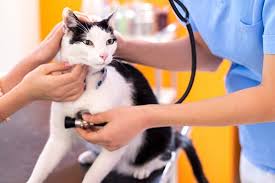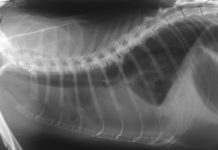Heartworm in cats is actually transmitted to pets (specifically cats and dogs) via mosquito bite, which carries the miniscule heartworm larvae. Furthermore, the heartworms are some kind of parasites called dirofilaria immitis. These have the presence of thin spaghetti if they reach their adult stage. Though both the cats and dogs may become infected with the heartworm, it is much more prevalent among the canines. In the actual fact, cats only represent about 10 to 15 percent of the cases of heartworm in the United States. The untreated and undetected adult heartworms may infect the arteries of the lungs and the heart. It’s an enormously serious condition and may lead to heart failure in the pet. Moreover, the heartworms are much more common in humid and hot areas where the mosquito infestation is heavy. Read on through this article to learn more about heartworm prevention for cats here.
Facts about Heartworm in Cats
Here are some essential facts about heartworm in cats that you may want to know:

- The heartworm disease is actually a silent killer, especially on its early stages. The pet might be infected with the heartworm for several months. This is before you may notice any symptoms. That is actually one reason why the preventive medications are best options for the management of the condition.
- It will take about seven months or more for the heartworm to be transmitted by a mosquito to get mature and be an adult heartworm in the pet.
- The first ever documented mention of the heartworm disease in pets appeared in the year 1847. It was documented in the Western Journal of Medicines.
- The wild animals, which may acquire the heartworm disease, actually include ferret, raccoon, muskrat, coyote, fox, and wolf.
- Pets cannot catch heartworm disease from each other. Just the bite from an infected mosquito may transmit the parasite to the pet.
Prognosis of Heartworm in Cats
The heartworms are diagnosed with a simple blood test. If your cat is diagnosed with heartworms, it will need to be monitored closely by a vet. Some supportive treatment may help in prolonging the life of the cat. Based on some research, some of the infected cats may even experience some spontaneous clearing on their own heartworm infection, even though permanent damage to the respiratory system might have happened.
Moreover, there are various methods used in the diagnosis of the heartworms. Unluckily, none of these are 100 percent reliable. Therefore, a combination of tests is often necessary. The diagnostic sequence commonly progresses as follows:
Clinical Signs
Among the most challenging aspects of the diagnosis of cat heartworm diseases is that there are actually no specific clinical signs. The most usual signs are the sudden inception of coughing, as well as the rapid breathing, signs, which may also be due to some other diseases. Moreover, some other common non-detailed clinical signs include vomiting and weight loss. Occasionally, a seemingly normal cat might be found dead, or might develop a sudden devastating respiratory condition. Further, heartworm disease is detected via a post-mortem exam. Moreover, the sudden death is also thought to be because of a reaction in the lungs to the young heartworms, or to a particular reaction to live or dead heartworms, which enters the pulmonary arteries, as well as obstructing the blood flow to the lungs.
Blood Tests
Numerous blood tests are used in the prognosis of the heartworm. However, the heartworm antibody test and antigen tests are proved to be the most beneficial in the diagnosis of the disease.
- An eosinophil count may be measured in the cats that are suspected to harboring the heartworms.
- A blood sample may be tested for the microfilariae presence.
- The heartworm antigen test helps in detecting the adult female heartworm presence.
- Heartworm antibody test helps in determining that the immune system of the cat has been exposed to the heartworms.
Radiographs
X-rays allow us to view the size and the shape of the heart of our pet. These allow us to measure it. A lot of cats who have the condition have increased size of pulmonary arteries, or their way to the lungs as the worms obstruct them.
Echocardiography
This allows the examiner to directly view the internal structures of the heart, as well as the surrounding vessels. It is also essential in assessing function and condition of the heart. In some of the cats, the adult heartworms may be visible.
Heartworm Prevention for Cats
Due to the fact that the treatment for the advanced heartworm is too risky and difficult in the dogs, and non-existing in the cats. The prevention is the best protection you can opt to. The chewable heartworm pills are readily available in either daily or monthly dosages.

Furthermore, the top brands like Tri-Heart Plus and Heartguard. A lot of pet owners go for the topical medications that are applied directly to the skin of the animal on a daily basis. These medications helps in managing mites, roundworms, fleas, and hookworms as well. This is in addition to the control of heartworms. The most typically used topical preventive medication include Advantage Multi and Revolution. But before you proceed to heartworm prevention for cats and use any treatments, pay your vet a visit. You need to ask for some advices.
There’s a low dose of injection that’s available to protect the dogs against heartworms for about 6 months. This is less commonly used and has shown undesirable effects on some pets. Just like with any medications, your vet must give you the best advice and suggestions for a preventive medication suitable for your cats.
If you want to know more facts about the symptoms of cat heartworm, check this article out: What Are The Symptoms Of Heartworm In Cats?
For the treatments for cat heartworm, read this article: Are There Any Treatments For Heartworm In Cats?.









